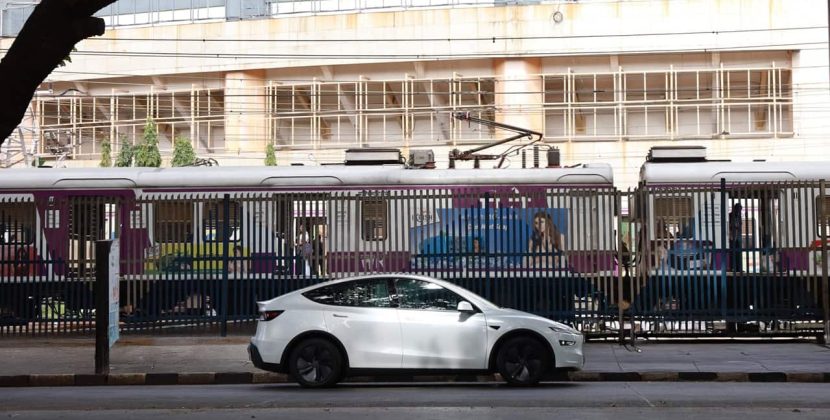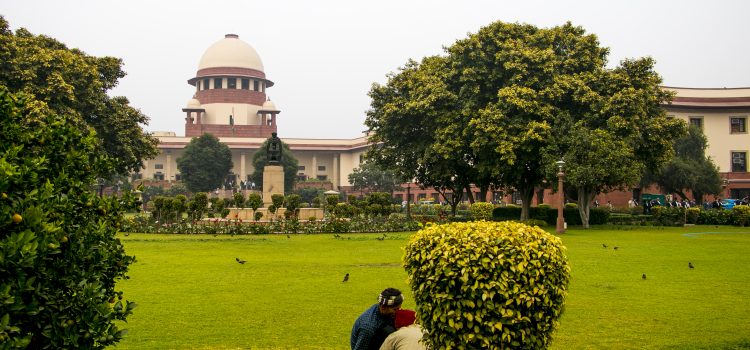
The correspondent filing this dispatch is a law student in Mumbai who has requested to remain anonymous.
On Monday, the Supreme Court of India (SCI) agreed to hear a batch of petitions challenging the Election Commission’s (ECI) decision to verify and revise the State of Bihar’s electoral rolls as it awaits assembly elections later this year. This will be a crucial milestone in the SCI’s election jurisprudence, following recent landmark judgements on the appointment of Election Commissioners and judicial review on delimitation.
The ECI is governed by constitutional provisions, the Representation of People Act, 1950, and the Registration of Electors Rules, 1960. In Mohinder Gill v. Election Commissioner, the SCI held that these powers are not absolute, and are subject to judicial review when fundamental rights are violated or natural justice principles arise. Article 324(1) of the Constitution vests the ECI with the power to prepare electoral rolls. Similarly, Rule 20 of the Registration of Electors Rules, 1960, provides that revisions may be intensive, summary, or a combination of both.
In the present case, the ECI conducted a Special Intensive Revision (SIR), a process that is intended to ensure that names of all “eligible citizens” are included in the electoral roll. This process is used in exceptional circumstances, or when major changes to the rolls are necessary. ECI justified its decision based on issues of “rapid urbanization, frequent migration, young citizens becoming eligible to vote, non-reporting of deaths and inclusion of the names of foreign illegal immigrants” that have plagued Bihar politics for decades.
The challenges to this process are multifaceted, with a major concern being the systemic disenfranchisement of legitimate voters from vulnerable and marginalised communities. The petitioners argued that the SIR violates fundamental rights on two major grounds: the stringent documentation requirements and exclusionary criteria, and the compressed timeline of this exercise.
In the 2003 electoral roll revision, the SIR required individuals whose names were missing to submit eleven documents in order to register. The ECI has since relaxed this rule, now allowing voters to submit documents at a later date if they complete the required voter forms at their earliest convenience. While the Aadhaar identification document has been conspicuously excluded from this list, it remains necessary for proof-of-birth requirements as part of ECI’s Form-6 application for new voters. The controversy surrounding documentation requirements centres on persistent challenges faced by marginalised communities regarding housing instability, inability to access formal identification, and limited literacy, all of which make it difficult for these communities to complete the process. This process imposes a disproportionate burden on impoverished individuals, migrants, Adivasis, Muslims, women, and informal workers, which exacerbates systemic challenges and reinforces Bihar’s status as the most backwards state in the country. Despite having formal safeguards and remedies against the arbitrary deletion of names from electoral rolls, the question of effective access to justice in Bihar looms.
This violates the principle of substantive equality as seemingly neutral rules disproportionately harm disadvantaged groups. However, it is necessary for ECI to insist on some form of documentary verification to discharge its constitutional duty to prepare electoral rolls. Additionally, ECI has instructed both Booth Level Officers and Electoral Registration Officers to take special care when working with vulnerable populations. For instance, failure to demand any proof of identity could result in inaccurate electoral rolls, which would in turn undermine the principle of free and fair elections. Thus, the ECI must reconcile both considerations. Operationalising the Aadhaar as a valid document for proof-of-birth requirements is a viable common ground on which to achieve this objective due to its relatively wide availability in Bihar. The opposition has also demanded the inclusion of other documents, such as ration cards and Mahatma Gandhi National Rural Employment Guarantee Act (MGNREGA) cards.
The second challenge, however, is more difficult to adjust and rectify because the ECI’s truncated timeline for the SIR drive cannot be reasonably justified. It was launched in late June 2025, just five months before the assembly elections. The petitioners rightly argue that such a schedule makes it impossible to carry out a revision of such a scale without risking errors, wrongful deletions, and administrative arbitrariness. This is further amplified by the Special Summary Revision (SSR) that was already conducted in 2024 that addressed issues of migration, deaths, and ineligible entries. Had the ECI instead identified discrepancies at a time that warranted a SIR, the process could have commenced far earlier. The sudden decision to re-open and overhaul the electoral rolls in a poll-bound state has not been sufficiently justified.
The ECI issued a decision to conduct SIRs throughout the entire nation, with Bihar being the first state to undergo this exercise on account of the upcoming assembly elections to be held in November. In this context, the SCI’s ruling on the challenges to the Bihar SIR will bear significant consequences. The matter has been listed before a division bench of the Apex Court on Thursday, with each order and hearing eagerly awaited by stakeholders on either side of the litigation. The judiciary has time and time again reiterated its role as a protector of the integrity of the election process, and the outcome of this case will redefine the contours of India’s electoral democracy.











